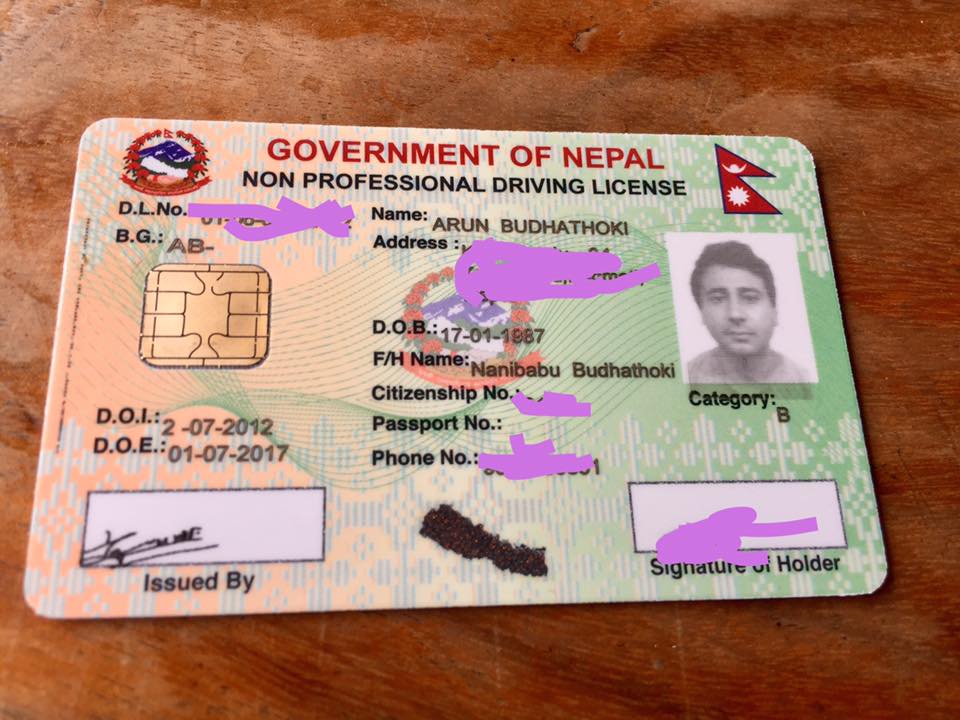How the smart license discriminates against Nepali women
After I received my first-ever smart driving license in Kathmandu, I couldn’t contain my joy since it was digital. You will understand my reaction when you’ll know how tedious the process is to get a new one. I had received my not-so-smart license back in 2012 and I didn’t care much then but this time it was different. Joy turned into an embarrassment when I saw there was no mention of my mother on the so-called biometric card. I had got a non-professional license. I still don’t understand what it means by.
As I walked out of the dusty Ekantakuna office, several thoughts emerged in my head and I felt compunction about the thought. Why is our country still reeling under the patriarchal mindset? Why haven’t we recognized Nepali women? This top-down systematic sexism is evident in every corner of the country. It has resulted into affecting the lives of Nepali women. Our very social construct is molded by it.
What difference does it make to the society and the nation if the license only is smart? We have had reports that the traffic police still don’t have the machine to read our digital licenses. It appears that the implementation of the project was speeded just to show the donors that the money has been spent. I wonder how Nepali women feel when they receive a smart license. Do they feel smart enough to travel on the dusty roads of Kathmandu? And do I feel smart enough because my mother’s name is not mentioned who learned to drive but seldom drives?
The narrative of our roads is masculine too. If you travel on the roads of Kathmandu then you will understand that most vehicles are run by men—and, they are aggressive.
The trend of Nepali women driving has slowly increased but they have to struggle a lot to squeeze in. Although there are few who have crossed the barriers and proved men wrong.
Driving is not gender-centric. Roads cannot belong to one gender. Just like a country.
What about transgenders and LGBT groups who wish to drive? What about single mother’s children who wish to drive? Oh wait, we still don’t have the provision where a mother can pass citizenship to her children. This loophole in our citizenship system has created a fallacious system where the citizens are confused. At least in a grave way.
The effects of granting the sole authority to Nepali men on passing citizenship has its adverse effects. We now live in a dumb country where a Nepali woman failing to prove that her husband is a Nepali citizen cannot survive well, especially if she has children. That is clearly reflected in our transit system. What’s the point of declaring Nepal an LGBTI-friendly nation while denying citizenship power to Nepali women?
Equality cannot be quasi-equal. If there has to be equality, it should be equally distributed to all gender.
The paranoia of Nepali politicians and lawmakers that foreign men, from India and China, will take Nepali women and populate the nation with anti-Nepal children is laughable. There are scores of nations in the world where women have equal rights on citizenship and yet manage their sovereignty well. This problem in Nepal can be solved by tweaking the immigration system. It is understandable that why any foreigner should be provided the fastest path to becoming a citizen. But really who would like to become the citizen of Nepal? Terrorists? We still lag behind in Asia and have failed to progress economically. Who are we afraid of? It is the time that we empower our women and become smart too. The roads are narrow but the journey will be surely fruitful.
But why even mention the name of the father and husband in the smart license? A former lecturer at the Tribhuvan University (TU) and poet residing in Melbourne now sent me a private message on Facebook stating the photo that I posted raised several questions for us. I told him I had the same question in my head after I received my smart license. Wouldn’t it be smarter if our parents’ name is not mentioned on our smart license instead of giving preference to fathers only? Why even bother mentioning husbands’ name?
I didn’t show my license to my mother thinking perhaps she would find it bizarre. And I haven’t shown it to my father too. They are least bothered how my smart license looks like and don’t even care what’s written there. Why is then the authority issuing the license thought of this grand plan that including the father’s name on the license would make it look smart enough? Only they would be able to answer this.
For now, I’ve tucked my smart license inside my pocket and feel smarter that I am the citizen of a country where women have no space on the roads. They might have to change themselves into fathers and husbands. While smart card might be finding its domicile!
By Arun Budhathoki







